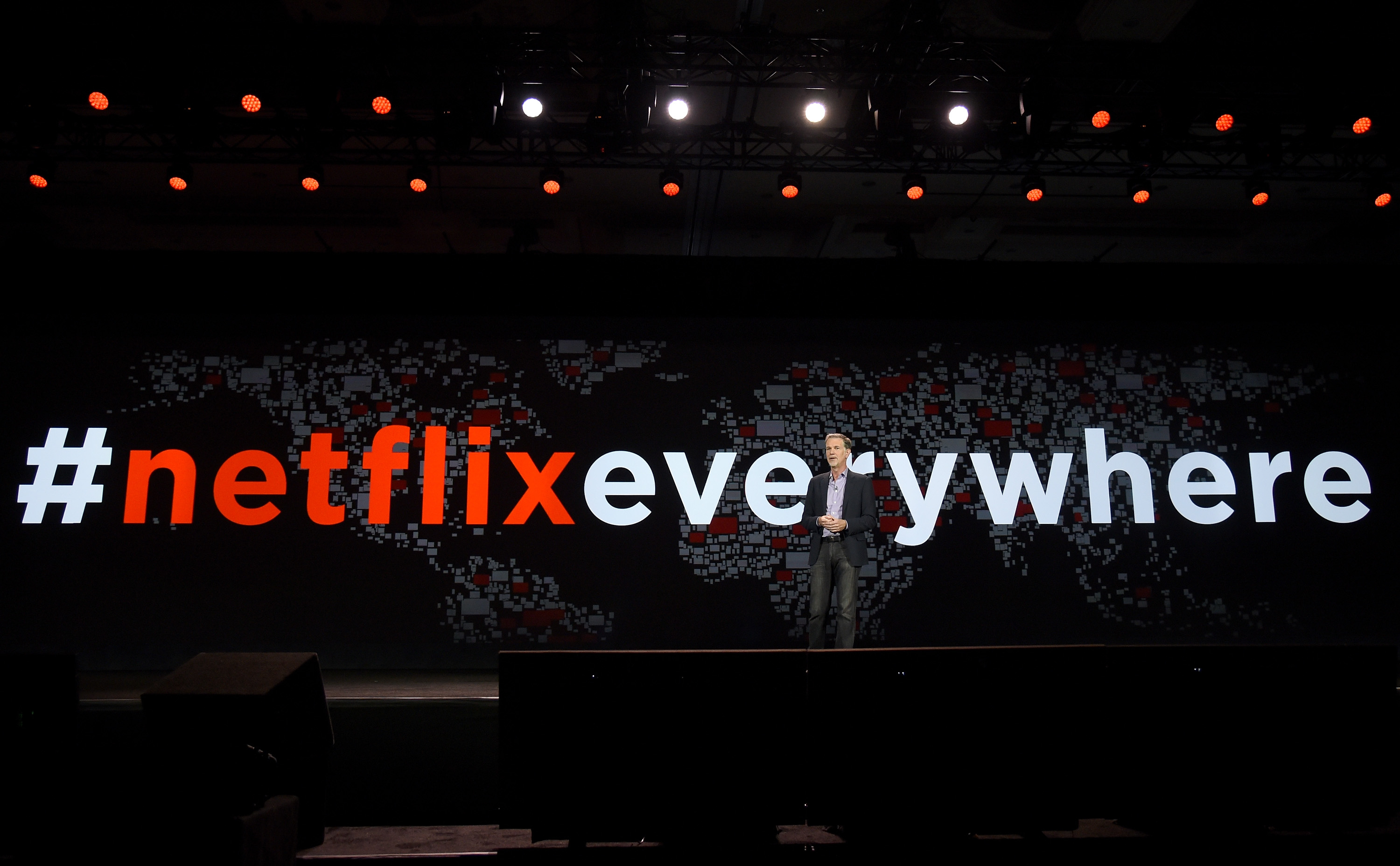Netflix conquers the world
Less than a month into 2016, Netflix has all but accomplished its goal of becoming "truly global"

A free daily email with the biggest news stories of the day – and the best features from TheWeek.com
You are now subscribed
Your newsletter sign-up was successful
The smartest insight and analysis, from all perspectives, rounded up from around the web:
"Netflix's New Year's resolution was to become truly global," said Joshua Brustein at Bloomberg. And less than a month into 2016, the streaming-video juggernaut has all but accomplished its audacious goal. In a keynote address this month at the International Consumer Electronics Show, Netflix CEO Reed Hastings "flipped the switch" in 130 new countries, making Netflix available virtually everywhere in the world (with the notable exception of China). With the all-at-once expansion, Netflix execs hope to tear up the rule book that's governed how movies and TV have been distributed "since the invention of video cameras." Instead of arduously hammering out content rights on a country-by-country basis, Netflix will now work to "strike deals to stream content anywhere on earth." More broadly, the company will slowly stop tailoring its library to fit individual countries, and instead hopes to eventually offer the first online TV network "that's identical for viewers in Ireland, Israel, Iran, or Indonesia." In the process, Netflix's algorithms can "begin to train themselves on the viewing habits of the entire world."
That kind of global ambition has turned Netflix into "the most feared force in Hollywood," said Yvonne Villarreal and Meg James at the Los Angeles Times. For years, the entertainment industry saw Netflix as little more than a "scrappy vendor" of mail-order DVDs; when the company added online streaming in 2007, studios cheered the move as a way they could earn money on their older catalogs of movies and reruns. But these days, Netflix is a bona fide industry competitor, with plans to make 600 hours of original programming this year, on par with most major TV networks. "Many of Hollywood's most talented writers and producers take their proposals to Netflix first." And even though Netflix remains a major source of licensing revenue for studios, there's considerable worry that the company's commercial-free format is chipping away at TV's $70 billion in annual ad revenue.
The Week
Escape your echo chamber. Get the facts behind the news, plus analysis from multiple perspectives.

Sign up for The Week's Free Newsletters
From our morning news briefing to a weekly Good News Newsletter, get the best of The Week delivered directly to your inbox.
From our morning news briefing to a weekly Good News Newsletter, get the best of The Week delivered directly to your inbox.
Media moguls, beware: Netflix just might be "the Amazon of the entertainment industry," said Farhad Manjoo at The New York Times. "Like Amazon before it, Netflix's business is so daring that it seems like it shouldn't work." It's spending billions to create and license content, without owning any of the pipes that take that content into people's homes. But also like Amazon, it is amassing huge amounts of data on what consumers want, and "it's using that data to create content that appeals to a wide range of demographics globally." More subscribers means more data, which means more money to spend on new content, and on and on until the company steamrolls the media landscape.
Netflix's devotion to data has "serious implications for the shows and movies it makes, and for how you watch them," said Brian Barrett at Wired. Take Adam Sandler's latest movie, The Ridiculous 6, which was universally panned. It happens to be "the most-streamed movie in the company's history." Sandler, as Netflix executives say, "travels well," at least according to the data, and the company is committed to developing shows that appeal to universal tastes — even bad ones. "Pleasing all of the people all of the time has never been a viable content model. Then again, no one's ever had near-infinite chances to get it right."
A free daily email with the biggest news stories of the day – and the best features from TheWeek.com
-
 How the FCC’s ‘equal time’ rule works
How the FCC’s ‘equal time’ rule worksIn the Spotlight The law is at the heart of the Colbert-CBS conflict
-
 What is the endgame in the DHS shutdown?
What is the endgame in the DHS shutdown?Today’s Big Question Democrats want to rein in ICE’s immigration crackdown
-
 ‘Poor time management isn’t just an inconvenience’
‘Poor time management isn’t just an inconvenience’Instant Opinion Opinion, comment and editorials of the day